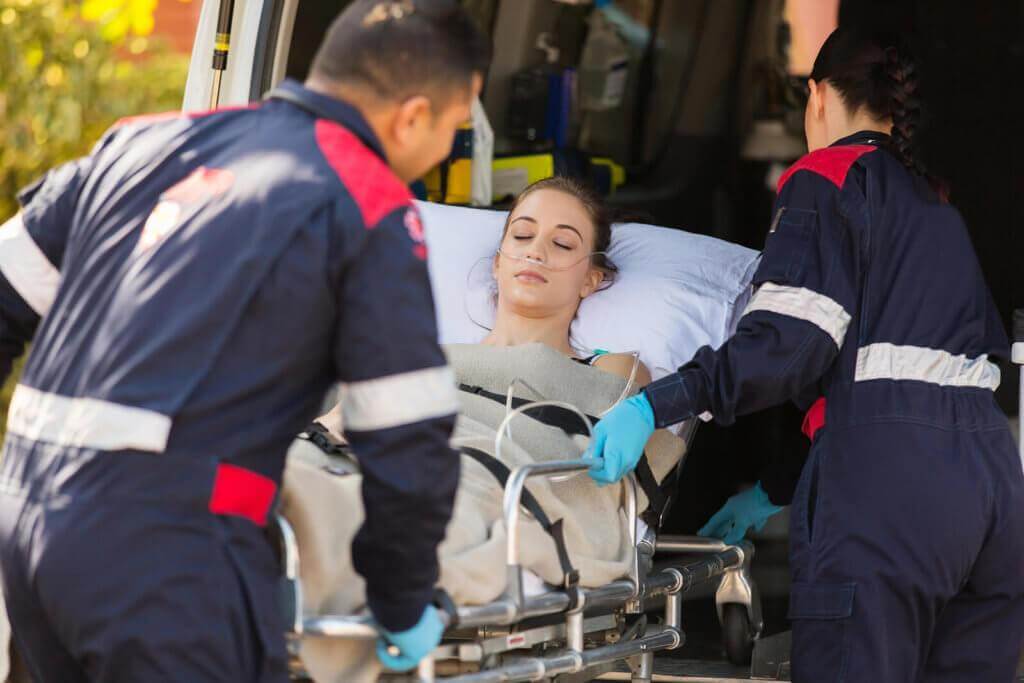 Here is expert advice on how to avoid and recognize alcohol poisoning—both in yourself and others.
Here is expert advice on how to avoid and recognize alcohol poisoning—both in yourself and others.
The Centers for Disease Control and Prevention reports that 2,200 alcohol poisoning deaths occur in the United States each year, an average of six people each day. Men account for 76 percent of those deaths.
“Alcohol poisoning is more common and life-threatening than people realize,” says Diane Calello, executive and medical director of the New Jersey Poison Control Center at Rutgers New Jersey Medical School’s emergency medicine department.
“Intoxication can lead to death or permanent brain damage. A person who consumes a fatal dose of alcohol may stop breathing or choke on their vomit while unconscious. As alcohol levels continue to rise in the body, a person who looks asleep may very well be unconscious.”
A variety of factors, including gender, weight, and food consumption influence the amount of time between drinking alcohol and feeling its intoxicating effects, Calello says.
Here, she gives some advice about how to avoid and recognize alcohol poisoning:
- Understand how much you’re drinking. People often consider how many drinks they’ve had, but don’t take into account the volume or alcohol content of those drinks. A standard drink is: 12 ounces of beer (at 5 percent alcohol by volume), 5 ounces of wine (at 12 percent alcohol by volume), or 1.5 ounces of 80-proof liquor (at 40 percent alcohol by volume). Most alcoholic drinks are not consistently measured, which makes it difficult to know exactly how much alcohol you are consuming. In addition, drinks today, especially craft beers, often have a much higher alcohol content than they did in the past.
- “Sleeping it off” is never a safe option. A person who appears very drunk or has passed out may be showing early signs of alcohol poisoning and be in real danger. Immediate medical help is essential. Most states offer immunity from arrest and prosecution for anyone who in good faith seeks medical assistance for an overdose victim, as well as immunity for the person suffering the overdose.
- Know the critical signs of alcohol poisoning: Mental confusion, stupor, coma (or you can’t wake a person up); slow or irregular breathing; blue skin color or low body heat; vomiting; or seizures.
- Don’t hesitate, get medical help. If you have concerns about alcohol poisoning, the effects of alcohol or alcohol-related illnesses—or if someone is unconscious, not breathing, hard to wake up, or having a seizure, call 911.
Source: Rutgers University

Related Books:
The Alcohol Experiment: A 30-Day, Alcohol-Free Challenge to Interrupt Your Habits and Help You Take Control
Annie Grace
The Alcohol Experiment invites readers to participate in a 30-day challenge to re-examine their relationship with alcohol and take control of their habits. This book offers an empowering approach that encourages self-reflection, personal growth, and a healthier relationship with alcohol.
Click for more info or to order
Quit Like a Woman: The Radical Choice to Not Drink in a Culture Obsessed with Alcohol
Holly Whitaker
Quit Like a Woman is a candid and insightful book about the challenges of living in a culture obsessed with alcohol and the benefits of choosing a life of sobriety. Through personal stories and research, Holly Whitaker offers a unique perspective on the role of alcohol in society and provides practical tools and advice for those seeking to quit drinking.
Click for more info or to order
Unwasted: My Lush Sobriety
Sacha Z. Scoblic
In this memoir, Sacha Z. Scoblic recounts her journey to sobriety and the lessons she learned along the way. With honesty and humor, she explores the challenges of overcoming addiction and the joys of living a sober life. This book is a must-read for anyone seeking inspiration and insight on the path to recovery.
Click for more info or to order
Beautiful Boy: A Father's Journey Through His Son's Addiction
David Sheff
Beautiful Boy is a powerful memoir about a father's struggle to understand and help his son as he battles addiction. With compassion and insight, David Sheff offers a gripping account of the impact of addiction on families and the challenges of navigating the complex landscape of recovery.
Click for more info or to order
Chasing the Scream: The First and Last Days of the War on Drugs
Johann Hari
Chasing the Scream is a thought-provoking book that explores the history and impact of the war on drugs. Through interviews with experts, activists, and people affected by addiction, Johann Hari exposes the flaws of the current drug policy and offers a vision for a more compassionate and effective approach to addiction treatment.


























